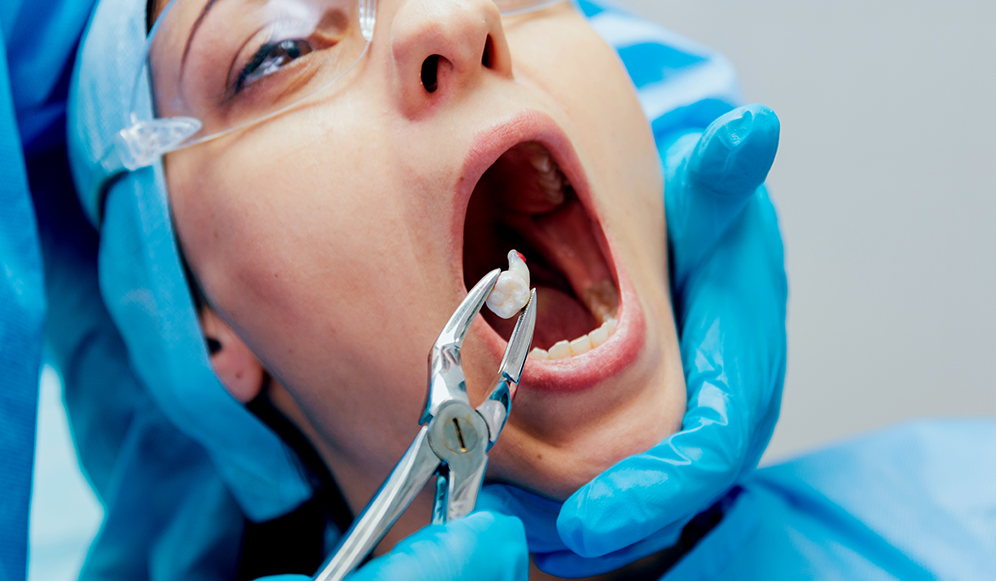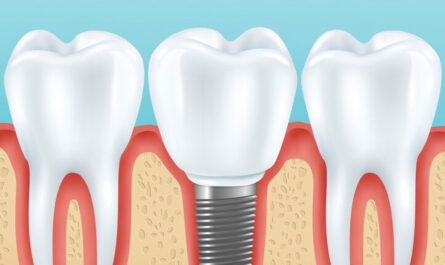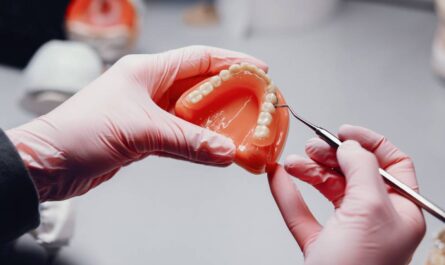In life, I’m sure you’ve experienced this:
When something is messing up your life, you remove that particular thing or person because they are spreading negativity, and you can’t focus, right?
Tooth extraction is the same for your oral health. Just like removing negativity is important for your life, removing a problematic tooth is important for your healthy smile. Both livespersonal and dentalare important, so why focus on only one?
Let’s see what tooth extraction exactly is.
What is Tooth Extraction?
Tooth extraction means removing a tooth from your mouth. Dentists do this only when the tooth is causing problems or cannot be saved. The most common teeth to be removed are wisdom teeth, also called third molars, because they often grow in the wrong position or don’t have enough space.
How Does It Happen?
A tooth usually needs to be removed (extracted) only when it is causing problems. Here’s how it happens:
1. Wisdom Teeth Problems
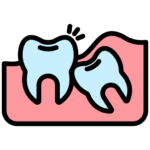
- Wisdom teeth are the last teeth to grow, usually in the back of your mouth.
- Sometimes there isn’t enough space, so they get stuck in the gums or bone (impacted).
- This can cause pain, swelling, or damage to other teeth.
2. Severe Tooth Decay or Cavities:
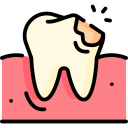
- If a tooth is badly damaged by cavities and cannot be repaired with a filling or crown, the dentist may have to remove it.
Example: Like a wall with a huge crack that can’t be fixedyou have to take it down.
3. Broken or Injured Teeth:

Teeth that break due to an accident or injury, and cannot be saved, may also need extraction.
Before removing any tooth, dentists take an X-ray to check the position and see the best way to remove it safely.
What is Solution?
Wisdom Teeth in the Wrong Position: (Just like sometimes in life, we end up in the wrong position while figuring things out!)
- Wisdom teeth are the last teeth in the back of your mouth.
- Sometimes they don’t grow straight or get stuck in the gums or jawbone.
- Dentists use x-rays to check where they are hiding.
- If they are in the wrong position, they can press on nearby teeth, causing pain, swelling, or even damage.
- When that happens, the dentist will remove the wisdom teeth to keep your mouth healthy.
Other Teeth That Are Badly Damaged: (In life too, some things break beyond repair, and we have to let them go!)
- Tooth problems are not only about wisdom teeth.
- If a tooth is broken in an accident (trauma) or has very deep cavities (caries) and cannot be fixed with a filling or crown, it may need to be removed.
- Before removing any tooth, the dentist will carefully check it and take an x-ray to decide the best way to help you.
Patients with Medical Conditions: (Sometimes unexpected things happen in life too, and we can’t blame anyone we just need extra care.)
- If a patient has other health problems like heart issues, diabetes, or low immunity, the dentist will take special precautions.
- Such patients may need antibiotics before and after tooth extraction to prevent infections and keep them safe.
Conclusion
Life teaches us that sometimes, letting go is the healthiest choice whether it’s people, habits, or even a tooth that’s causing trouble. Tooth extraction may sound scary, but it’s really just a step toward relief, healing, and a healthier smile.
By removing the tooth that’s creating pain or problems, you’re protecting your other teeth, gums, and overall health. Both your personal life and dental life deserve peace so never ignore the signs your teeth are giving you.
If something is hurting, visit Dr Irfana’s Dental Studio at Jogeshwari (W), Mumbai and take the first step toward a happier, healthier you!
Read our patient review:
FAQ
Is tooth extraction painful?
No, the dentist numbs the area with anesthesia, so you don’t feel pain. You might feel some pressure, but it’s not painful.
How long does it take to recover after a tooth extraction?
Most people start feeling better in 2–3 days, but complete healing may take 1–2 weeks depending on the tooth and your health.
Can wisdom teeth grow back after removal?
No, once wisdom teeth are removed, they do not grow back.
What should I eat after tooth extraction?
Stick to soft foods like soups, yogurt, mashed potatoes, or smoothies for a few days. Avoid hot, spicy, or crunchy foods.
Do I need antibiotics before or after an extraction?
Only if your dentist prescribes themusually for patients with certain medical conditions or a high risk of infection.
How do I know if my tooth really needs to be removed?
If you have severe pain, swelling, infection, or a broken tooth, visit a dentist. They will take an x-ray to confirm if extraction is needed.
Is it safe to remove a tooth if I have other health problems?
Yes, but your dentist will take extra precautions and may give you antibiotics to prevent complications. Always share your medical history.
What happens if I don’t remove an infected or damaged tooth?
It can lead to spreading infection, more pain, and damage to other teeth or gums. Removing it protects your oral health.
